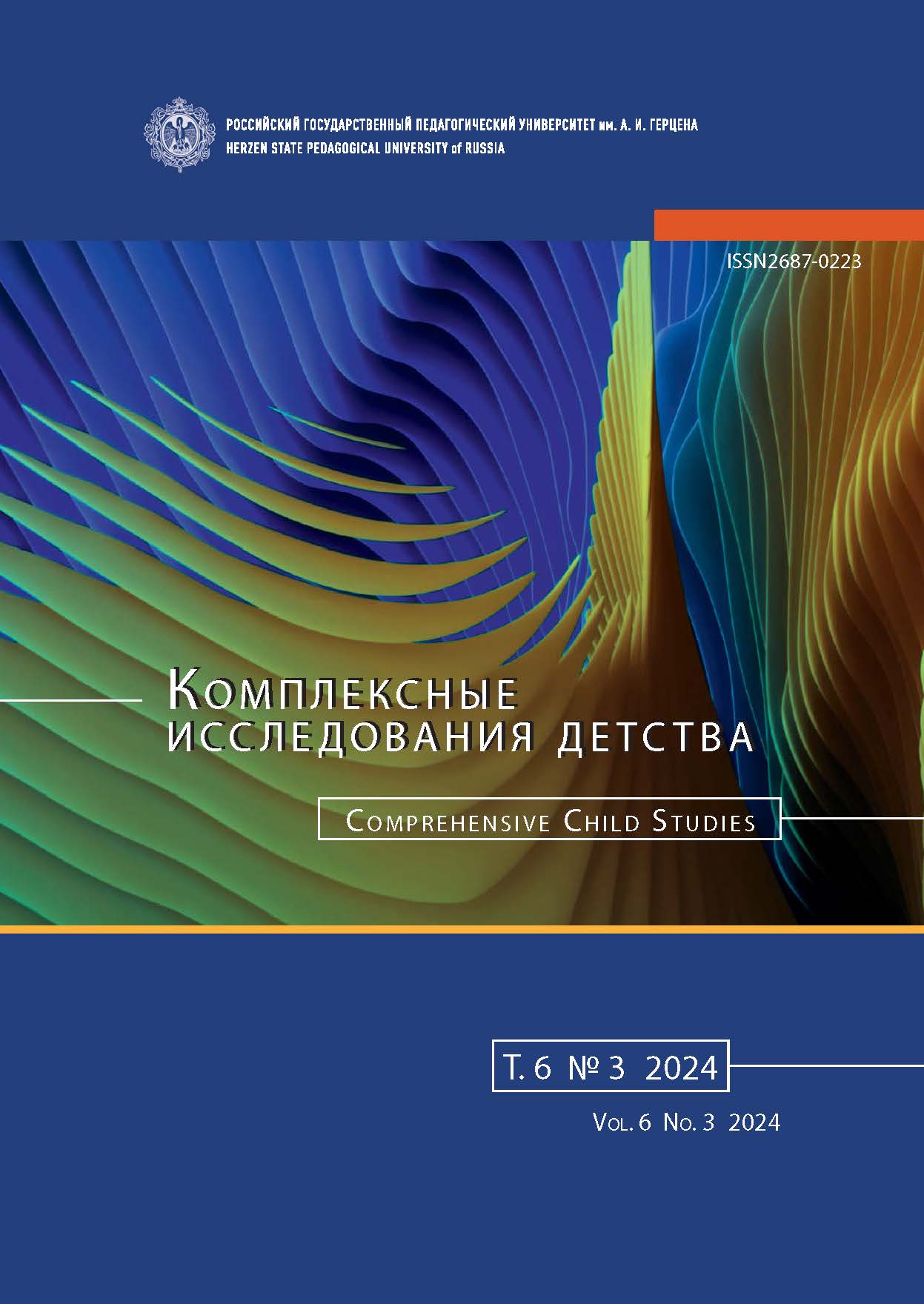Communication games in teaching communicative grammar to non-language students
DOI:
https://doi.org/10.33910/2687-0223-2024-6-3-200-206Keywords:
game technologies, communication games, grammar games, communicative competence, grammatical competence, communicative grammar, teaching a foreign language on non-language degree programsAbstract
The article examines the latest research into the use of communication games as one of the most effective game methods in teaching communicative grammar of the English language to university students on non-language programs. The article provides a brief description of the features of communicative grammar and its main aspects. The author notes that game technologies — in particular, communication games, grammatical games and communicative-grammatical games — have a high potential in teaching communicative grammar. The author notes that communicative-grammatical games increase the efficiency of the formation and further development of grammatical competence as an integral component of communicative competence. The article describes various points of view on the problem of defining communicative competence. The author analyzes the peculiarities of using communication games and communicative-grammatical games to teach communicative grammar within the framework of the communicative approach, which highlights the principles of speech orientation, functionality, situationality, novelty and collective interaction. The article describes the functions of communication games and their implementation in the process of teaching communicative grammar. In conclusion, the article describes a communicative-grammatical game created by the author.
References
ЛИТЕРАТУРА
Бим, И. Л. (2007) Компетентностный подход к образованию и обучению иностранным языкам. В кн.: А. В. Хуторской (ред.). Компетенции в образовании: опыт проектирования. М.: ИНЭК, с. 156–163.
Гальскова, Н. Д., Василевич, А. П., Акимова, Н. В. (2017) Методика обучения иностранным языкам. М.: Феникс, 350 с.
Гончарова, Н. Л. (2006) К вопросу об иноязычных компетенциях. Сборник научных трудов Северо-Кавказского государственного технического университета. Серия: Гуманитарные науки, № 3, с. 74–77.
Караулов, Ю. Н. (2010) Русский язык и языковая личность. 7-е изд. М.: ЛКИ, 264 с.
Миролюбов, А. А. (ред.). (2010) Методика обучения иностранным языкам: традиции и современность. Обнинск: Титул, 464 с.
Сафонова, В. В. (2004) Коммуникативная компетенция: современные подходы к многоуровневому описанию в методических целях. М.: Еврошкола, 233 с.
Соловова, Е. Н. (2002) Методика обучения иностранным языкам. Базовый курс лекций. М.: Просвещение, 239 с.
Стрельникова, А. Б. (2015) Коммуникативная грамматика английского языка: методы преподавания в техническом вузе. Молодой ученый, № 8 (88), с. 1039–1042.
Халеева, И. И. (1989) Основы теории обучения пониманию иноязычной речи. М.: Высшая школа, 236 с.
Щукин, А. Н. (2007) Лингводидактический энциклопедический словарь. М.: АСТ; Астрель; Хранитель, 746 с.
Hadfield, J. (2005) Intermediate communication games. London: Addison Wesley Longman Publ., 127 p.
REFERENCES
Bim, I. L. (2007) Kompetentnostnyj podkhod k obrazovaniyu i obucheniyu inostrannym yazykam [A competent approach to education and teaching foreign languages]. In: A. V. Khutorskoi (ed.). Kompetentsii v obrazovanii: opyt proektirovaniya [Competencies in education: Design experience]. Moscow: INEK Publ., pp. 156–163. (In Russian)
Galskova, N. D., Vasilevich, A. P., Akimova, N. V. (2017) Metodika obucheniya inostrannym yazykam [Methods of foreign language teaching]. Moscow: Phoenix Publ., 350 p. (In Russian)
Goncharova, N. L. (2006) K voprosu ob inoyazychnykh kompetentsiyakh [On the question of foreign language competencies]. Sbornik nauchnykh trudov Severo-Kavkazskogo gosudarstvennogo tekhnicheskogo universiteta. Seriya: Gumanitarnye nauki — Collection of Scientific Works of North Caucasus State Technical University. Series: Humanities, no. 3, pp. 74–77. (In Russian)
Hadfield, J. (2005) Intermediate communication games. London: Addison Wesley Longman Publ., 127 p. (In English)
Karaulov, Yu. N. (2010) Russkij yazyk i yazykovaya lichnost’ [Russian language and linguistic personality]. 7th ed. Moscow: LKI Publ., 264 p. (In Russian)
Khaleeva, I. I. (1989) Osnovy teorii obucheniya ponimaniyu inoyazychnoj rechi [Fundamentals of the theory of teaching foreign speech understanding]. Moscow: Vysshaya shkola Publ., 236 p. (In Russian)
Mirolyubov, A. A. (ed.). (2010) Metodika obucheniya inostrannym yazykam: traditsii i sovremennost’ [Methods of teaching foreign languages: Traditions and modernity]. Obninsk: Titul Publ., 464 p. (In Russian)
Safonova, V. V. (2004) Kommunikativnaya kompetentsiya: sovremennye podkhody k mnogourovnevomu opisaniyu v metodicheskikh tselyakh [Communicative competence: Modern approaches to multilevel description for methodological purposes]. Moscow: Evroshkola Publ., 233 p. (In Russian)
Shchukin, A. N. (2007) Lingvodidakticheskij entsiklopedicheskij slovar’ [Linguo-didactic encyclopedic dictionary]. Moscow: AST Publ.; Astrel’ Publ.; Khranitel’ Publ., 746 p. (In Russian)
Solovova, E. N. (2002) Metodika obucheniya inostrannym yazykam. Bazovyj kurs lektsij [Methods of teaching foreign languages: Basic course]. Moscow: Prosveshchenie Publ., 239 p. (In Russian)
Strelnikova, A. B. (2015) Kommunikativnaya grammatika anglijskogo yazyka: metody prepodavaniya v tekhnicheskom vuze [Communicative grammar course of English grammar: Methods of teaching at technical university]. Molodoj uchenyj, no. 8 (88), pp. 1039–1042. (In Russian)
Downloads
Published
Issue
Section
License
Copyright (c) 2025 Olga S. Yakimchuk

This work is licensed under a Creative Commons Attribution-NonCommercial 4.0 International License.
The work is provided under the terms of the Public Offer and of Creative Commons public license Creative Commons Attribution 4.0 International (CC BY 4.0).
This license permits an unlimited number of users to copy and redistribute the material in any medium or format, and to remix, transform, and build upon the material for any purpose, including commercial use.
This license retains copyright for the authors but allows others to freely distribute, use, and adapt the work, on the mandatory condition that appropriate credit is given. Users must provide a correct link to the original publication in our journal, cite the authors' names, and indicate if any changes were made.
Copyright remains with the authors. The CC BY 4.0 license does not transfer rights to third parties but rather grants users prior permission for use, provided the attribution condition is met. Any use of the work will be governed by the terms of this license.







